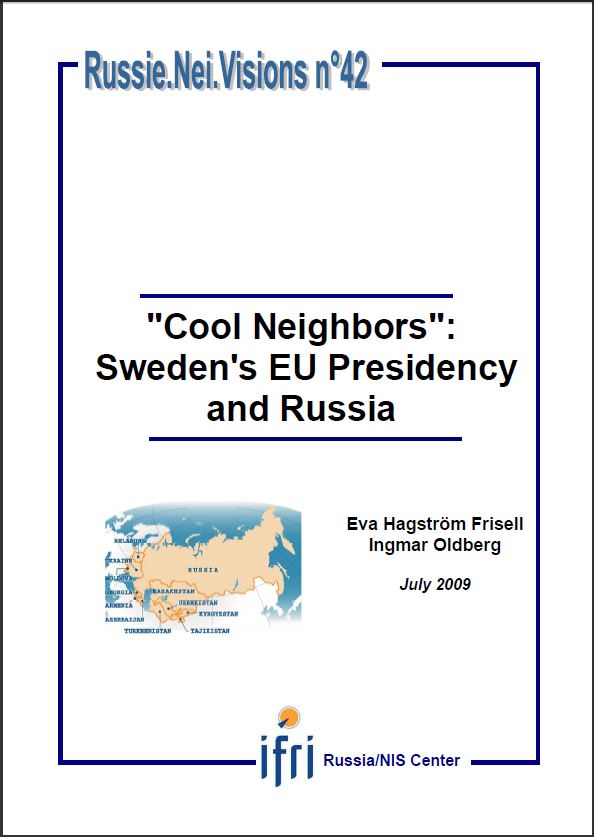"Cool Neighbors": Sweden's EU Presidency and Russia

Sweden and Russia are close neighors with a complicated relationship. They have normal political relations with growing economic and cultural exchanges, especially on a regional basis; however, they both foster an age-old distrust, and have diverging attitudes toward democracy and human rights. Furthermore, Sweden is not interested in Russian gas exports or a gas pipeline under the Baltic Sea. During its EU Presidency in 2009, Sweden is likely to prioritize issues such as climate change, economic growth, and the Baltic Sea region. It will continue the efforts of previous Presidencies for a new partnership agreement with Russia, however. The adoption of an EU strategy for the Baltic Sea region will be a key task, and it will be linked to the Northern Dimension policy, which focuses on regional cooperation with Russia. Sweden will also push the implementation of the Eastern Partnerhip with Russia's western and southern neighbors. This may, however, strain relations with Russia and lead to increased pressure on the prospective partners. In general, Sweden is interested in cooperation with Russia, but will not jettison its support for democratic values and human rights to attain it.
Download the full analysis
This page contains only a summary of our work. If you would like to have access to all the information from our research on the subject, you can download the full version in PDF format.
"Cool Neighbors": Sweden's EU Presidency and Russia
Related centers and programs
Discover our other research centers and programsFind out more
Discover all our analysesThe Caspian Sea as an Emerging Energy Hub : Potentials and Limitations
This report analyzes the prospects of the Caspian Sea region — and its key actors except for Russia and Iran — becoming an important energy hub serving the needs of the European Union (EU).
The European Union's Strategic Test in Georgia
The political crisis brewing in Georgia is of an existential nature for the country. What is at stake is Georgia's future as a democratic and sovereign European nation (EU).
Commanders of Putin's Long War: Purged, Reshuffled and Disgruntled
The trend of reshuffling the Russian top military command in the course of a fast-evolving and far from successful war has progressed unevenly both across the Armed Forces’ structures and in time. The rationale for and timing of the abrupt cadre decisions made by Commander-in-Chief Putin often defy logical explanation, and the rare official clarifications are no more informative than the usual information blackout.
Russian Military Manpower After Two and a Half Years of War in Ukraine
In addition to a military victory in Ukraine, the Russian leadership is planning to build up sizable troop formations for a possible conflict with NATO in the Baltic region and the Kola Peninsula. In particular, current plans aim for the military manpower to grow by about 350,000, reaching a total of 1.5 million soldiers and commanders. In the context of the current conflict in Ukraine, this cannot be accomplished without a new wave of mass mobilization.









